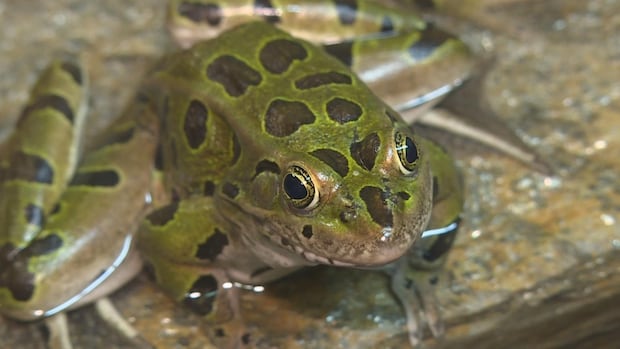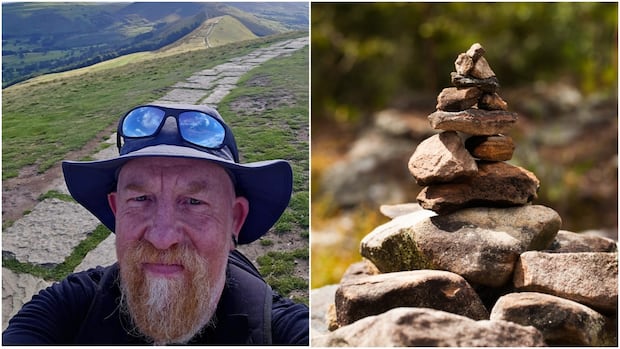In dark waters near Collingwood, Ont., a giant yellow machine with metallic claws precisely snatches tiny rock balls from the lakebed, kicking up sediment with each grab.
While it looks like a claw game at an arcade, for Impossible Metals, it’s a demonstration of the technology the company plans to use more than 10,000 kilometres away, to mine mineral-rich nodules from the Pacific Ocean seabed. But for some scientists, it is a concerning signal of the push for more deep-sea mining, which they warn could have devastating consequences for the world’s oceans.
Writing in the journal Nature on Wednesday, a group of environmental scientists from across the world including Canada are calling for a total ban on deep-sea mining, saying the underwater ecosystems are “too important to the habitability of Earth to gamble with for the narrow and uncertain rewards.”
They say such mining would disturb seabeds, releasing the carbon stored there (more than in shallower areas) and thus contributing to climate change. The letter also notes how little is known about deep-sea life. It says the risk of tapping into these resources is too high.
“There is a very strong case for a moratorium on all forms of exploiting the high seas,” Johan Rockström, one of the letter’s authors, told CBC News. That means anything outside of national jurisdictions, which extend 200 nautical miles from shore.
Rockström says the oceans hold 90 per cent of the excess heat trapped on Earth because of greenhouse gases.
A group of leading ocean and climate scientists, including Canadians, is calling for a ban on deep-sea mining just as U.S. President Donald Trump moves to fast-track undersea mining approvals.
“The ocean, ultimately, [is] the system that buffers and will determine the stability of the whole planet,” he said from Germany, where he is the director of the Potsdam Institute for Climate Research.
But Impossible Metals, which is based in San Jose, Calif., and has a technology division in Ontario, claims it will be able to strike a balance between protecting the environment and obtaining the nodules, which are rich in critical minerals, on the ocean floor.
Its autonomous underwater robot, the Eureka 2, will be careful, says CEO Oliver Gunasekara.
“We use AI to identify life,” he said, while demonstrating the unit in Collingwood. “If we see life, we put a quarantine, virtual circle around it, and the vehicle flies over the top and doesn’t impact that life.”
Gunasekara says using robotic arms means less sediment disruption compared to scraping or digging into the seabed.
He says a future that is more electrified is “going to need massive quantities of all of these metals, and the ocean has the biggest source” — and that his company can get them faster, for the lowest cost and with the least environmental impact.
It is waiting for approval to mine off of American Samoa in the Pacific Ocean. Though there are currently no commercial deep-sea mining operations, a recent executive order from U.S. President Donald Trump is seeking to make it easier to mine within U.S. waters — directing agencies to streamline permissions and invest in such technology. The administration hopes to open a new source of critical minerals to reduce foreign dependence. The nodules contain cobalt, nickel and manganese — useful in batteries and other electronics.
But the order is also using an old law to justify mining and exploration beyond U.S. jurisdiction.
Along with Impossible Metals, another prominent mining firm, The Metals Company, has turned to the U.S. to start mining in the ocean.
Rashid Sumaila, another of the letter’s authors and Canada Research Chair in Interdisciplinary Oceans and Fisheries Economics at the University of British Columbia, is concerned that a few companies and countries who are very pro-mining could overrule the concerns of the rest of the world.
Many countries have long been negotiating over deep-sea mining at the UN-affiliated International Seabed Authority, of which the U.S. is not a member.
Sumaila is critical of approving ocean mining without global agreement.
“The majority can say, ‘Look, this doesn’t make sense,’ and yet a few push hard… and at the end of the day, they end up getting what they want to the detriment of the larger global population,” he said.
Countries will gather next week in France for the United Nations Ocean Conference to talk about sustainable practices.







